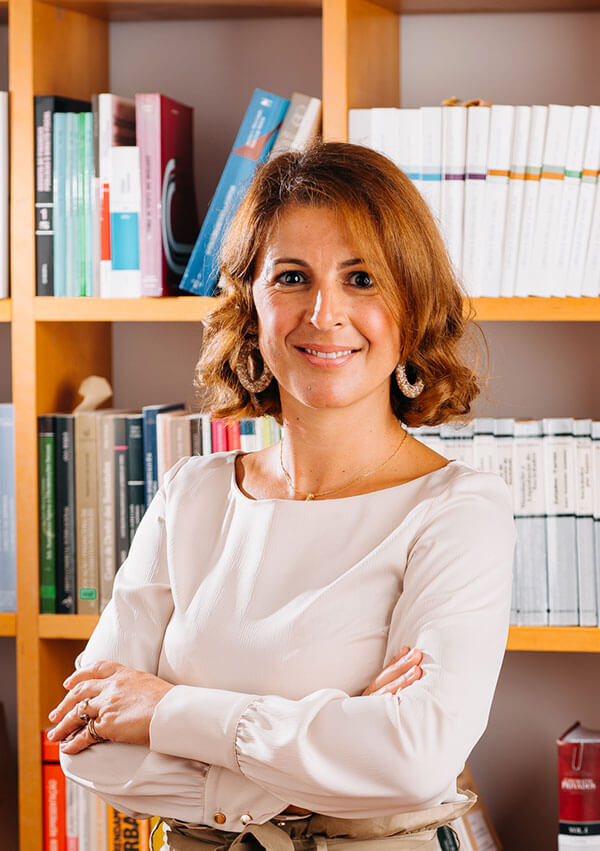After thoughtful consideration (or maybe on impulse, like some of our clients who have fallen immediately in love with the island), you are buying property in Portugal, or even in the Pearl of the Atlantic, Madeira island. As lawyers and accountants, our team understands that investing in property is always a financial effort, and careful planning is required primarily when investing in a foreign country.
Buying Property in Portugal? 10 things you should know for 2022
We created the following 10 basic steps list to guide those buying property in Portugal (or Madeira Island).
1. Hire a lawyer
It may sound cliché, but if you do not live in Madeira nor are acquainted with Portuguese and Madeiran law, a specialized real estate lawyer can represent, advise and guide you throughout the entire acquisition (or rental process).
Our team at MCS is composed of four English-speaking lawyers whose careers have always been tied to advising expat clients investing in Madeira Island.
2. Obtain a Portuguese Taxpayer Identification Number
Any expat living in Madeira will confirm that you cannot do anything in Portuguese territory without a Portuguese Taxpayer Identification Number (NIF – Número de Identificação Fiscal).
Before you rush to Loja do Cidadão or a Portuguese Tax and Customs Authority’s branch, you must sit down with a certified accountant, or chartered economist, to better understand the implications and nuances concerning NIF applications.
Obtaining a NIF is quite a fast thing to do, but it is essential to detail your specific circumstances. Therefore, our team members will need to know (to advise you better):
- Your plans (are you buying a summer vacation or are you moving to Portugal or Madeira Island?);
- Your marital status;
- Current country of residence;
- Do you have children?
Our certified accountants will use the information above to determine your NIF residential status (the potential tax implications arising from it) and the need for other family members to have a NIF.
Last but not least, with the information abovementioned, we will also be able to determine whether or not you will be required, under law, to appoint a Portuguese tax representative. A tax representative appointment is necessary if one resides outside the European Union.
3. Know your income tax benefits
If you are buying property in Portugal, you may as well be considering effective relocation to the country. Under such a scenario, your team of lawyers and accountants should inform you about the 10-year tax holiday available to anyone who decides to base themselves permanently in Portugal: the non-habitual resident (NHR) status. Generally speaking, under the NHR status, any foreign-sourced income can be exempted from personal income tax in Portugal.
4. Refurbishment and Golden Visa
When buying property in Portugal, specifically in Madeira, to refurbish it for obtaining the Golden Visa, one must consider what qualifies as refurbishment.
To obtain the Golden Visa through property purchase and refurbishment, the investor must carry out works that effectively improve the quality of the property, that will enhance its energy certification, or that benefit its conservation safety, in relation to its previous state, even if it has already benefited from rehabilitation works.
As an example, the replacement of windows and doors, for options that improve the energy certification of the property, or even the installation of solar panels, replacement of flooring or interior lining, for one that enhances the quality of the property, are eligible works, and suffer no more than the addition of the contract to carry out rehabilitation works, provided that, concluded with a legal person that is duly authorized by the Institute of Public Markets, Construction and Real Estate, I.P.
5. Municipal Property Taxes
In Portugal, taxpayers pay an annual municipal property tax (IMI – Imposto Municipal Sobre Imóveis) as real estate property owners.
Liability to pay the IMI tax occurs when one owns the property on the last day of the respective tax year (calendar year).
Property tax rates range from 0,3% to 0,45%; these apply to the patrimonial tax value of the asset. While properties in rural areas are taxed at 0,8%, properties in more urban areas are taxed within the mentioned range. If a property has been re-valued since 2004, the abovementioned tax will fall between 0,2% and 0,5%. If a property was valued before 2004, the rate is between 0,4% to 0,8%.
On the other hand, should the property be owned through a corporation that is resident in blacklisted jurisdiction, then the IMI rate will be 7,5%.
Apart from IMI, Municipal Property Transfer Tax (IMT – Imposto Municipal sobre as Transmissões Onerosas de Imóveis) is collected each time when a house is bought in Portugal.
Be sure to contact your lawyer or accountant for a simulation on the IMIT due before acquiring property and to know whether your are entitled to special tax benefits of exemptions.
6. Due diligence when Buying Property in Portugal
Our team of lawyers will conduct legal, due diligence on the real estate property that you wish to acquire. Such due diligence includes a survey and analysis of, at least, the following documents: Certidão do Registo Predial do Imóvel; Cardeneta Predial; Plano Director Municipal; Licença de Utilização; Ficha Técnica de Habitação.
The above documentation needs to be analyzed before any agreement is signed to reduce as much as possible the risks related to the property acquisition process.
Technical due diligence by a Chartered Architect or Chartered Civil Engineer is also recommended to be carried out before property acquisition to assure that there are no structural damages to the home you intend to buy and to guarantee that any refurbishment plans that you wish to carry out are permitted by the municipality (or Regional Government) with jurisdiction over the property (or its premisses).
7. Hire a surveyor
Although not a common practice among Portuguese property buyers, the exposure to the Anglo-Saxon market, has made it a familiar routine to hire a property surveyor before finalizing the purchase of the property. Under Portuguese law, permanent members of the Order of the Architects and of the Order of the Engineers are the only ones allowed to perform property surveys on the habitability conditions of a house or apartment.
8. Promissory Contract of Purchase and Sale
Law concerning buying property in Portugal has established the common practice of having both parties sign a Promissory Contract of Purchase and Sale (CPCV for short).
The primary purpose of the CPCV is to bind both parties to a future transaction. Under the said contract, each party will establish the terms and conditions for the purchase and sale, committing themselves to the future business under the terms of the contract.
With the CPCV, the buy also commits themselves to the payment of a down payment (usually 10% of the total value of the property), as this is a way not only to formalize the deal and the conditions under which it is done but also to bind both parties as abovementioned. If the seller repents, you can receive double the deposit paid as a buyer. If you are the one who gives up, you lose the deposit.
9. Public Deed of Purchase and Sale
The final purchase and sale contract is prepared by the lawyers involved in the transaction and signed by the parties (or its legal representatives) before a notary (or other authority authorized under law), who will be the entity that will certify that the transaction takes place as agreed, verifying the payment of the price, certifying the identity of the parties, the documents relating to ownership and the payment of tax obligations.
The buyer will have to pay the Municipal Property Transfer Tax (IMT) with the public deed. Depending on the specific case of your transaction, the notary (or other authority authorized under law) is also responsible for registering the acquisition on behalf of the new owner with the Portuguese Land Registry.
Should you opt for buying property in Portugal (or Madeira Island) through a trust, private foundation, or company, be sure to speak with our team, as the process is slightly different from the one described above. As mentioned previously, to observe all the specificities of the various stages of the buying and selling process, it is recommended that then parties, both buyer and seller, are duly advised by a lawyer specialized in real estate lawn and by a certified account (especially if you, the buyer, are a foreigner). In any case, tax analysis should be conducted to assure the efficacy of said structures in this kind of investment/transaction.
10. Testament
Buying property in Portugal will inevitably lead to concerns over succession matters. Under Regulation (E.U.) No 650/2012 rules are laid down to determine which E.U. Member State’s authorities will deal with a cross-border succession and which national law will apply to that succession. In this way, a citizen or a testator (the person who makes a will) can plan their succession and their heirs no longer need to deal with multiple national laws and authorities.
The regulation also makes it easier for a court decision or a notarial document dealing with a succession matter issued in one E.U. Member State to have effects in another E.U. Member State. Finally, the regulation creates the European certificate of succession (ECS), a document that can be requested by heirs (as well as legatees, the executors of a will and the administrators of the assets of the deceased) to prove their status and exercise their rights in another EU Member-State.
The abovementioned legislation also deals with specific procedural issues linked to a cross-border succession — that is, which E.U. Member State’s authorities will deal with the succession, which national law will apply to the succession, how court decisions and notarial documents on succession matters will produce effects in another E.U. Member State and how the ECS can be used. The regulation does not deal with the substantive issues of a cross-border succession, such as what share of the deceased’s assets should go to their children and spouse and how free the testator is to decide to whom they will leave their assets. These issues will continue to be governed by national law.
This article is provided for general information purposes only and is not intended to be, nor should it be construed as, legal or professional advice of any kind.

Lília has graduated in 2002 with a law degree from Universidade Nova de Lisboa. She joined MCS’s legal team in 2003, providing support to the legal department in corporate and shipping… Read more




